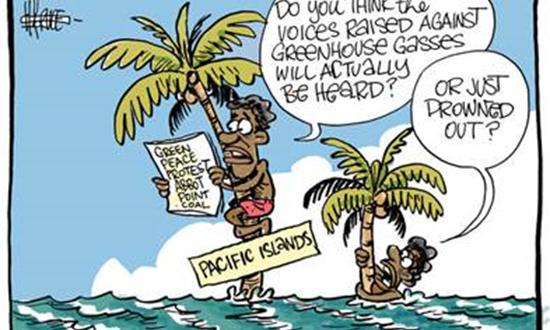
PACIFIC MEDIA CENTRE SEMINAR: Three key notions of a professional free media that emerged more than two centuries ago were that the press should be 1) watchdogs on political abuse of power, 2) provide accurate facts for citizens to make informed choices in general elections, and 3) provide a platform for critical and informed debate.
These traditionally fundamental attributes of a free press with declining credibility have been under question in Western democracies for the past few decades (McChesney, 1999. McChesney & Pickard, 2011; Peters & Broersma, 2013), but nowhere has the legitimacy of the twin assumptions of ‘impartial reporting’ and ‘objectivity’ been more severely tested than with environmental journalism and evaluating risk.
The new risks involve issues such as climate change, extraction industries degradation, depleted fisheries, genetically modified (GM) food and crops, nuclear waste and oil spills.
Living in one of the world’s most vulnerable regions to the impact of climate change and the challenges of aid effectiveness and adaptation funding (Coates et al, 2012), South Pacific journalists are at a critical crossroads.
In this seminar, the PMC director Professor David Robie explores traditional journalism values and the Pacific profession’s own challenges of ‘adaptation’.
ALSO: Doctoral candidate and Kiribati Independent editor Taberannang Korauaba will respond and give an overview of his research into climate change and the media in Micronesia.
When: 5-7pm, Thursday, 20 March 2014
Where: WG809, Level 8, Sir Paul Reeves Building, AUT City Campus
More information


